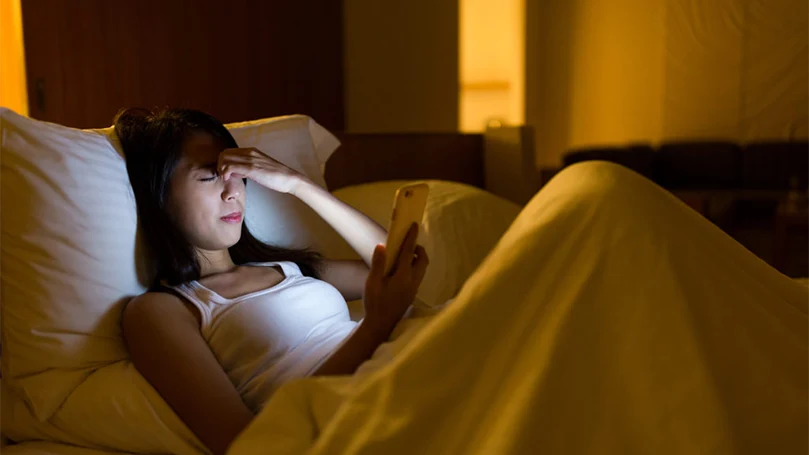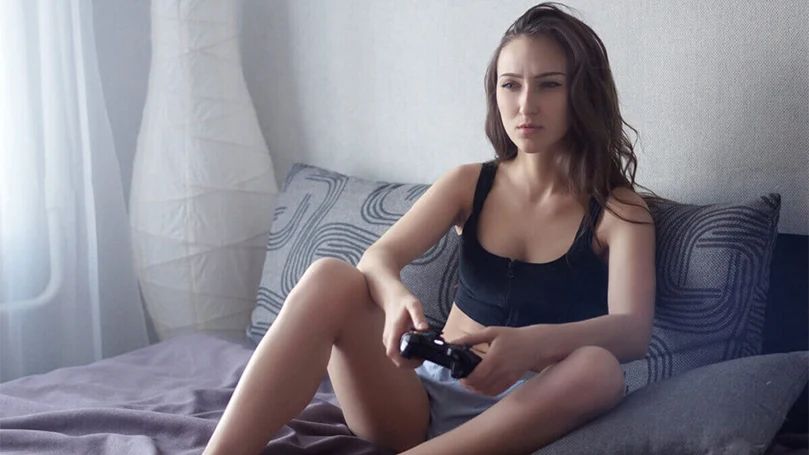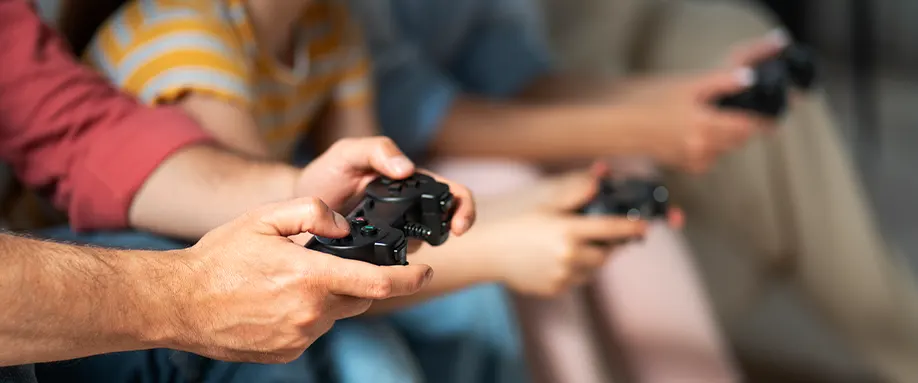The research
There's only a limited amount of research on the effects of playing video games on sleep, and these studies are aimed at children and teens because they are more likely to take part in gaming before bed.
A 2012 study held by Flinders University found that participants who played video games for 2.5 hours or more at night experienced a delay in falling asleep of 39 minutes. They also lost an average of 27 minutes in total sleep loss during the night.
The researchers also found that playing games caused a drop on the amount of time spent in the REM (rapid eye movement) stage of sleep – a loss of 12 minutes for those who spent over two hours playing games. This may not seem like a significant reduction but REM plays an important part in helping us remember content we learnt that day so for adolescents in their final years of school who are revising for exams, winding down at night with a video game might not be the best idea.
A much earlier study published in 2003 also found that performing exciting activities, like video games before bed, can actually cause your body to produce less of the “sleep hormone” melatonin. Melatonin is used to regulate sleep cycles and is produced in the pineal gland in the brain. It is likely, however that this effect was mostly due to the effect of blue light emitted by screens which has been shown to affect melatonin production.

Active or passive
It’s quite common for people to fall asleep in front of the TV at night. Watching a movie or television show is a passive experience. It doesn’t require any interaction other than pressing the remote to change channels.
Modern video games on the other hand often have extensive built-in interactive components. Strategic multiplayer shooter games like Fortnite and PUBG even allow you to talk through headsets to fellow game players. This adds a social reason to continue game play into the night.
Also, it depends on the level of immersion in the game. First person shooters are more “involving” than other types of game. You are directly “in” the game, rather than controlling an object/person on the screen. This will tend to get you more excited and therefore you’ll find it harder to get to sleep.
That’s why gaming has a lot more in common with social media than watching TV or movies. The two-way stimulation from games, Facebook, or instant messaging can be almost impossible to resist at times. This is the reason 90% of 18-29 year olds are known to take their smartphones to bed with them.

Lucid dreaming and video games
Video games and dreaming are both a form of alternate reality. That’s why there are very clear correlations between playing video games and our dream lives. Studies found that avid gamers were more likely to be able to control their dreams than people who didn’t play video games. It is difficult to know if these enhanced lucid dreaming abilities help or hinder the sleeping experience. In most cases, they are just fun. However, they are an interesting component in sleeping habits of hardcore gamers.

Conclusion
It’s not that easy to tell exactly how video games affect our sleep. Our common sense tells us that any stimulating activity before bedtime is likely to disrupt our sleep pattern. We know for sure that exposure to bright lights has the effect on us. It’s preventing our bodies from producing melatonin, which helps us to get to sleep. Based on research, it’s advisable to stop all your activities involving bright screens at least an hour before going to sleep. Playing into the night will take a toll on your health, energy and mental capabilities.
Spread the word
"*" indicates required fields















I had no idea.